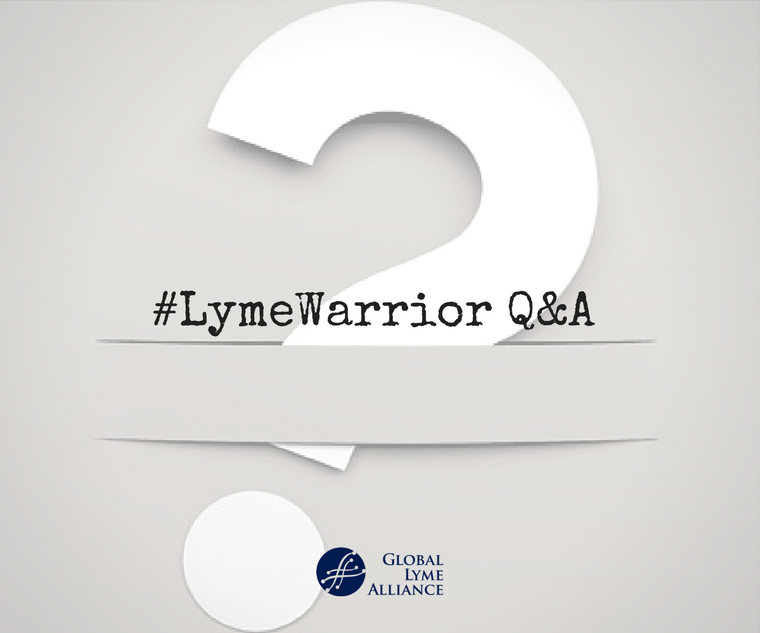
As a Lyme warrior, how do I love and forgive this new version of myself, even though it’s not who I am at my core?
Do you have a question for Jennifer Crystal? Email her at jennifercrystalwriter@gmail.com
Lyme and other tick-borne diseases can change our lives drastically, especially with cases that go undiagnosed for a long time, or that hang on through months or years of treatment. Highly ambitious, highly active people might find themselves bedridden and unable to support themselves. I went from teaching full-time and skiing steep and deep terrain to living with my parents, barely able to climb a flight of stairs or read a paragraph. Unable to work or do the activities I loved, I began to question my purpose—even my very identity.
Here’s what I ultimately learned: my job and my capabilities only defined me if I let them. Of course, you feel sad, angry, and frustrated by the ways illness is holding you back. But ask yourself, besides skill, what did you bring to your job or activities? Was it a gregarious personality? An optimistic outlook? A sense of humor? Those qualities make up who you are at your core. I realized I could still lend a compassionate ear to a friend, find the humor in a ridiculous situation, or hold on to faith that things would get better, even when I was at my sickest.
It took many years of treatment, a shattering relapse, and many lifestyle changes for me to reach the state of remission I’ve now enjoyed for over a decade. Despite minor flare-ups, I have gotten better and better each year, able to do more and more. Am I back to my old life? No. But I’ve brought my old self into my new life—which includes working part-time, skiing, and living independently. I still lend a compassionate ear to a friend, find the humor in a ridiculous situation, and hold on to faith that things will get better. I’d argue that I love my core self even more for all that she’s survived, and for the vibrant new normal that she’s created.
You ask how to forgive yourself—and to that I must reply, for what? Now, this is a bit like the pot calling the kettle black, because I spent years blaming myself for my illness, beating myself up for not taking better care of myself, going over and over and over what I could or should or would have done. But I didn’t cause my illnesses; a tick did. I didn’t cause my symptoms; pathogens did. Are there ways I could have better cared for myself, or times when I took my frustration out on others that I feel badly about? Sure. But I’m human. We are all works in progress. I believe that extending compassion and grace to myself has allowed me to accept illness and its effects as just parts of my life—not the definition of who I am.
It may help to write about who you are at your core: what makes you who you are? How can you bring those qualities into your new, evolving life? You might also try writing a love letter to yourself, or even to your illness. Finally, it may be helpful do some cognitive behavioral therapy with a therapist who understands tick-borne illness.
Did you start to have a temper with your memory problems?
Before Lyme disease, ehrlichiosis, babesiosis, and possible bartonella ravaged my brain, my memory was incredibly sharp. Thankfully, I still have a very strong long-term memory, which certainly helped as I was writing my memoir. But my short-term memory was affected by tick-borne illness, and that has been incredibly frustrating. If you find yourself getting upset when you can’t remember someone’s name, or yelling at yourself when you pour orange juice on your cereal, know that you are not alone. It’s normal to get mad when an illness is robbing you of what you know to be your normal capacity.
It’s also important to know that tick-borne diseases can cause psychiatric manifestations, including angry outbursts. If you’re feeling short-tempered, it may be a reaction to symptoms, but it also may be a symptom in and of itself. Finally, you must remember that fighting tick-borne illness takes a lot of energy, meaning you have none left over when something small but frustrating happens. This can cause what some people refer to as “Lyme rage,” that is, having an immediate temper flare over something that otherwise wouldn’t rattle you.
There’s no shame in talking to your LLMD about temper flares; your doctor may be able to alter your medications to help you. It also may help to see a Lyme Literate psychiatrist, and/or to talk to a therapist to figure out good coping skills when your temper does flare. Each of these steps helped me. My memory issues have improved as my tick-borne illnesses have abated. I still have moments of extreme frustration, but they’re fewer and farther between. With the right support, things can get better!
***
For more blogs, click here.

Jennifer Crystal
Writer
Opinions expressed by contributors are their own. Jennifer Crystal is a writer and educator in Boston. Her work has appeared in local and national publications including Harvard Health Publishing and The Boston Globe. As a GLA columnist for over a decade, her work on GLA.org has received mention in publications such as The New Yorker, weatherchannel.com, CQ Researcher, and ProHealth.com. Jennifer is a patient advocate who has dealt with chronic illness, including Lyme and other tick-borne infections. Her memoir, One Tick Stopped the Clock, was published by Legacy Book Press in 2024. Ten percent of proceeds from the book will go to Global Lyme Alliance. Contact her via email below.




-2.jpg)

